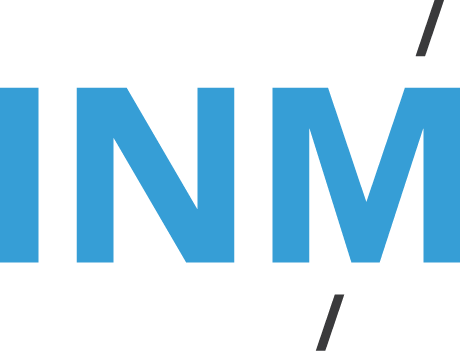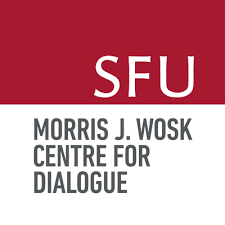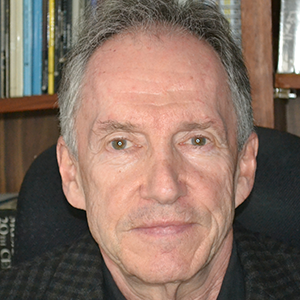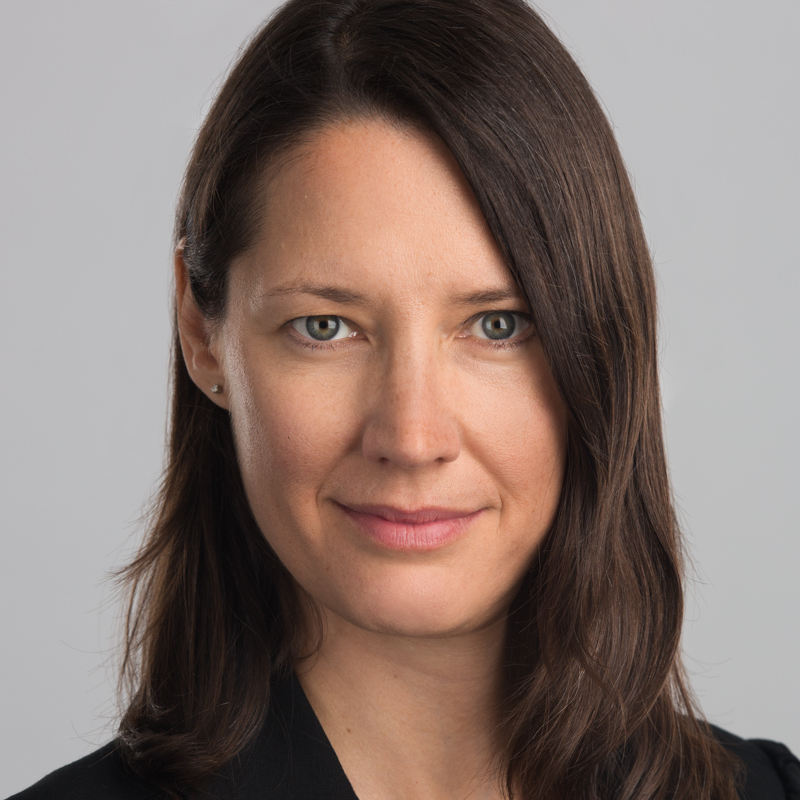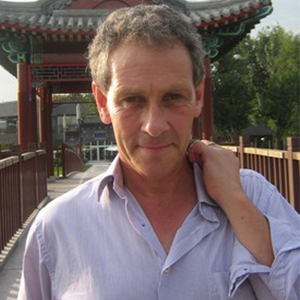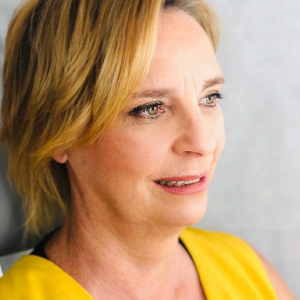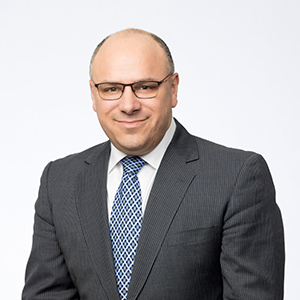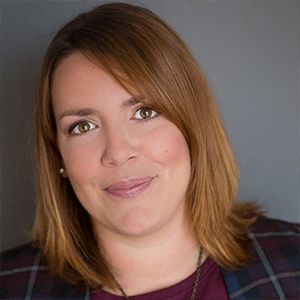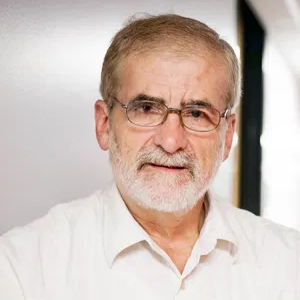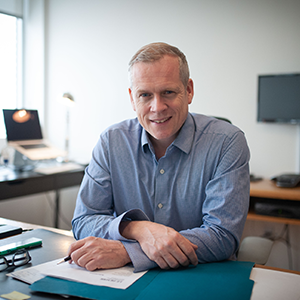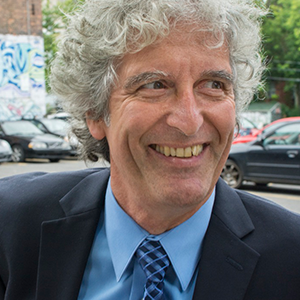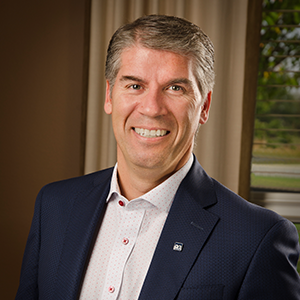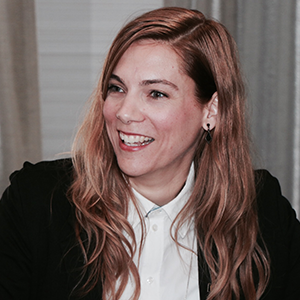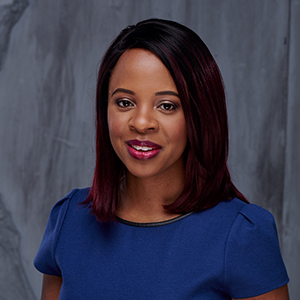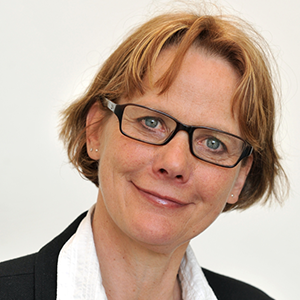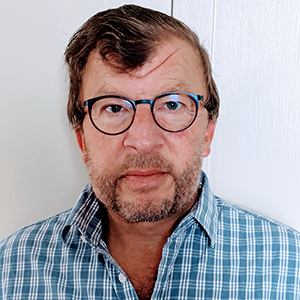Participation Guide
Dialogue on the Role of the Media in Canadian Democracy
In November 2020, you will take part in the Dialogue on the Role of the Media in Canadian Democracy, organised by the INM in collaboration with the Morris J. Wosk Centre for Dialogue at Simon Fraser University.
You can find on this page a description of the project, the objectives and the programme of the sessions, the logging information for the virtual activities and a presentation of the participants.
We thank you for your interest in the approach and your participation.
Description and Objectives
The media constitute the fourth estate and act as democracy watchdogs. Freedom of the press, independence and pluralism are essential to preserve the right of all citizens to be adequately informed on matters of public interest. In a context that is less and less conducive to the emergence and survival of media, where “fake news” keeps rising, where thought leaders on the public stage are increasingly influential, and where populism gains ground and people become more cynical about public affairs, reflecting on these issues is essential to ensure the survival of public service journalism.
Address the major issues related to information, public interest journalism and democracy in Canada;
Identify the needs for additional information or research to properly document these issues;
Identify the best ways to unite the Canadian media and the ecosystem surrounding them;
- Identify the best ways to mobilize and involve the public in the discussion on these issues.
Programme
First session:
November 5, 2020 from 12 to 2 p.m. (Montreal time)
Information Pluralism and Democracy
The media play a fundamental role in a democracy. They help fuel public debate and allow the population to form an informed opinion on various societal issues. Described as the fourth estate, they are the watchdogs of democracy. In this regard, the lack of pluralism in the media can have a strong impact on their impartiality and independence. Are the media able to fully exercise their democratic role? Is Canada facing a lack of pluralism in its information? What consequences could media concentration have on Canadian democracy?
Session summary
After Michel Rochon opened the session, Julie Caron-Malenfant, Executive Director, Institut du Nouveau Monde, and Michelle Bested, Engagement and Social Enterprise Manager, Morris J. Wosk Centre for Dialogue, presented the approach.
Alain Saulnier, Guest Professor, DESS in Journalism, University of Montreal, gave a presentation on “Journalism and Democracy: Information and Disinformation, the 21th Century Battle.” Here are the highlights:
- Journalists have an undeniable role to play in democracy but they have lost their monopoly on communication and now have lots of competition.
- Even large media groups have lost some of their importance, compared to web giants.
- The ability of the media to reach parts of the population, like youth and conspiracy theory believers, has declined.
- Traditional media consumption is limited among youths.
- The media are sometimes condescending.
- The media are not the only ones experiencing a legitimacy crisis – so do all the other institutions in the industrial era.
The presentation was followed by a plenary question and comment session:
- Polarization isn’t limited to politics, it also affects what is considered true and false; there is a whole world out there that we don’t know. Do we have research that shows to what extent the population is divided between these two media worlds, before trying to decide what to do in journalism? If we do, what do these studies show?
- This issue hasn’t been sufficiently explored.
- People trust the media more in Canada, especially in Quebec, than in the United States. Readership has never been so high.
- Maybe journalism practices should change and the relationship between journalists and the public should be recast, in order to go towards people and the issues they deem important and to explore solutions with the public?
Simon Claus, Researcher at CRICIS, presented introductory notions on “Media Concentration and Information Pluralism”:
- Media concentration, with a few oligopolies, isn’t limited to Canada: it is the same in all capitalist economies.
- Time/Warners’s merge in USA, later purchased by AOL.
- Bell, Rogers, and Vidéotron’s purchases of media groups.
- The CRTC allows these transactions to facilitate the creation of large Canadian media groups that will compete with groups in the US.
- There is a long history of debates on media concentration and pluralism.
- Monopolies often result in content that isn’t very diversified while healthy competition tends to ignore niche topics.
After the presentation, participants were divided into sub-groups for questions and comments:
- Outside Quebec, it is important to preserve independent media in the smallest provinces and in minority contexts, and, in Quebec, the same can be said of regions: with limited coverage and few journalists, the conditions are right for disinformation.
- Canadian news tends to be very Ontario-centric and are not very representative of other parts of the country, but rather than talking about local coverage, we should discuss coverage in terms of content: Who decides the angle? Who is talking?
- Information pluralism also requires voice pluralism, through the inclusion in the media of racialized people as well as other under-represented groups and diverse opinions.
- The established media’s business model needs reviewed, looking at the Swedish model, possibly, to help smaller voices be heard; looking also at the APTN pilot project where reporters are seconded to cover remote Aboriginal communities; or looking at turning some Quebec media companies into co-ops.
- The lack of financing leads to cuts in the number of journalists or to the death of some media. Media concentration is linked to the financial model.
- Convergence and concentration have a huge impact on the way media people work, but the main problem is acceleration. For example, Bell Media rescued Noovo but must ensure that there are thresholds for local and original content. We must also ensure that there are mechanisms in place to guarantee independence.
Your Content Goes Here
Pascale St-Onge, President, FNCC-CSN, gave a presentation on media’s threatened pluralism and diversity:
- Economic conditions have consequences for media companies, for journalists and for plurality in all its forms.
- Content discoverability is more than crucial if the media are to compete with other large media groups.
- With the media under economic pressures, content designed for specific communities and more fringe publications are disappearing.
- Solutions involve reshaping the legislative framework, supporting the media aimed at minority audiences, and offering incentives for hiring ethnically diverse people.
The presentation was followed by a plenary question and comment session:
- When looking for solutions to media financing issues, we should think of journalism as more than an ideal and limited model. Emerging and thriving types of journalism – opinion, promotion and entertainment journalisms, for ex. – can be a source of revenues for more traditional forms of journalism.
- The media haven’t sufficiently acknowledged the changes that are happening; they must define their niche.
- We should not deregulate the media sector or protect information and news.
Video recording of the session
This video is intended for participants of the Dialogue on the Role of Media in Canadian Democracy. Please do not distribute it.
Second session:
November 12, 2020 from 12 to 2 p.m. (Montreal time)
Challenges Faced by the Canadian Media
Whether local, independent, public and conglomerate, the media face challenges in fulfilling their important role in our democracy. The emergence of the Internet, funding issues and competition from the US press are all challenges faced by Canadian media. What are the real issues? What are the obstacles facing our media? Is journalism in danger?
Session summary
Marie-Ève Martel, Journalist at La Voix de l’Est and Vice-President of the Board of Directors, FPJQ, gave a presentation on “Challenges faced by local media”. Here are some highlights:
- The challenges faced by local media are not really different from those faced by other types of media.
- Challenge #1: ensure their survival and monetize information.
- Not only are local ad revenues decreasing, but GAFAM are also siphoning online advertising.
- They are primarily free media that don’t use subscriptions, which means they don’t have access to this type of revenue.
- Challenge #2: avoid commercial pressures.
- Advertisers enjoy considerable power. They know that they play a key part in the survival of the media they finance, so they must be handled with care so as to preserve this source of funding. This creates a risk of censorship, and even of self-censorship.
- Challenge #3: maintain a healthy power relationship with cities.
- Local media is the main source of news.
- In Quebec, with Bill 122, cities no longer have to publish their public notices in print media. This change resulted in a loss of revenue for local papers.
- Challenge #4 : reconnect with the public.
- Content offered in local media is seen as just one type of content among many others.
- There is a lack of knowledge of the work done by local media and of its usefulness.
- Some potential solutions:
- Encourage media literacy.
- Create a fund for the production of journalistic content.
- Recognize information as a cultural product.
Bryan Myles, Publisher of Le Devoir, then gave a presentation on the topic of “Challenges faced by independent media”. Here are his key points:
- Le Devoir is an independent newspaper, in existence since 1910, an “anomaly in the media landscape”.
- Today, $7 out of 10 come from subscriptions and donations. The paper is betting on the existence of a future for the subscription model, even though the trend is moving towards free access.
- Independent media won’t go extinct, they will be reinvented.
- The media can no longer claim to be generalists. Their old role as mass media has disappeared – it started to crumble as early as the 1930s.
- There are several fault lines:
- Free access or subscriptions
- Content quality or quantity: if we offer free content, we will rely on advertising for financing, which pushes us towards quantity and not always quality.
- Audience indifference when faced with copious content or audience engagement, making us work on tailored content for users who are willing to pay.
- Why resort to subscriptions?
- It’s impossible to compete with GAFAM, they are too far ahead. It’s hard to believe that governments will follow through with their dismantling logic.
- Relying on advertising means that the challenge will be to fit into a relationship economy and find ways to nurture the strong connections we have with our respective audiences.
- Journalists no longer have a monopoly on news and journalistic ethics won’t be sufficient to maintain the social contract with our readership.
- Journalists must evolve a little. In the current move towards a digital economy, we must introduce new skills that aren’t always found in newsrooms.
Participants were invited to answer the following question in smaller groups: How can we ensure that local and independent media are sustainable? (practices, financing, role of journalists, etc.) Here is a summary of the discussions that ensued:
- The subscription system, on which Le Devoir relies, can be applied in Quebec because of this province’s cultural specificity. Importing this model would be difficult for English-speaking provinces.
- Subscriptions may not work for all media, even if those with a subscription-based business model don’t have as hard a time as those that rely on advertising.
- In some regions, because of their declining vitality, both the subscription-based and the advertising-based models are problematic.
- News are a public good but people aren’t willing to pay for this service.
- In the past, advertising financed the news, but it is no longer a viable option. Another solution could be public financing.
- Public financing and media independence with State financing are not mutually exclusive, so public financing must not be seen as a loss of independence. In Nordic countries, for example, there is no such debate.
- Philanthropy is an avenue that’s being explored in the United States, especially for topics related to climate change. So far, this approach isn’t used much in Canada, though.
- Insisting on keeping a traditional capitalist model, based on the notion that the strongest ones will survive, won’t work. Powerful media groups are more interested in economic considerations that in journalism and they will dominate the sector. We will need to change models and go towards a nonprofit model or one based on subsidies.
- There is no silver bullet. Local media must develop their identity. Local papers must make their own choices regarding what to cover and then they must be accountable for these choices.
- All types of media are different (conglomerates, public, independent…). The situation is also different depending on the province. We shouldn’t be looking for a one-size-fits-all solution because there is no such thing.
- GAFAM aren’t the source of all problems. One problem is linked to new readers and their reading habits. This problem is connected to schools. To what extent are new readers capable of reading a whole document and not just the headline?
- Most people think that the media are not working for the public good? The challenge then is to regain their trust. Surveys show a link between media credibility/trust in media and profitability.
Dwayne Winseck, Professor at the School of Journalism and Communication, Carleton University, gave a presentation and here are his key points:
- The State played a key part in the GAFAM culture. These social media companies are strongly criticized for their influence on the media, the economy, society and on democracy itself.
- Google and Facebook’s domination of the Internet, their advertising activity, and their model are often presented as a type of “vampire economy” responsible for the “journalism crisis” that is shaking up the media sector and cultural industries and is destroying democracy.
- Is the dominance exerted by GAFAM as major as it is often said to be?
- While Google and Facebook have the biggest and fastest share of advertising of all media, they do not dominate the global advertising market in Canada.
- Are they responsible for the current journalism crisis and the turmoil in the media sector? Not necessarily:
- The media sector and businesses that rely on advertising are fighting against Google and Facebook for an amount of advertising that’s stable, or even declining.
- Some of the wounds the media suffered were self-inflicted (mergers and acquisitions, linking of media content to telecoms-Internet companies, creation of multisectoral conglomerates…).
- Are they media companies and should they be regulated as such?
- The definition of digital platforms as media companies is based on superficial analogies.
- When attempting to regulate foreign Internet giants, it is important to get a sense of the magnitude of this domination compared to Canadian communication and media giants, or the “Big Five,” namely Bell, Rogers, Telus, Shaw (Corus) and Quebecor
Luce Julien, Executive Director of Radio-Canada News and Current Affairs, gave a presentation entitled “No public broadcaster without a public!”. Here are the highlights:
- Relevance and trust are important issues for all media, but they are even more important for public broadcasters:
- Public broadcasting must be in touch with what’s happening in the field and tell Canadians about the World. International news is more important than ever.
- Public broadcasting must be inclusive: there must be a diversity of opinions, as well as cultural and regional diversity…
- Public broadcasting must be present on all platforms.
- The main challenge today is public trust:
- 23% of Francophones trust the media, compared to 40% of the Canadian population.
- To reinforce this trust, we need to be fully transparent with citizens about journalistic approaches.
- Expectations and challenges for the next few years:
- We must continue to offer a good service to viewers and listeners who still use television and radio, while at the same time maintaining a digital presence.
- We must be innovative when it comes to formats, as with Rad, Carbone…
- We must deal with the labour shortage.
After these two presentations, participants were asked to answer the following question: How should we see the role of public broadcasters and media in general in the media ecosystem, especially in relation to GAFAM? Here is what emerged from the discussions:
- One thing is obvious: there is one advertising pie and, at best, it is staying the same size. These companies might be growing but the pie isn’t, so some get a smaller part of the pie.
- GAFAM are one of the reasons why companies are getting a smaller piece of the pie. Governments, the public, and CRTC didn’t regulate them enough in the 1990s, didn’t make them accountable enough for their content production.
- When analyzing the impact of GAFAM, linguistic sectors must be considered.
- Some people suggest offering content for free on social media, others think social media should be used to increase subscription revenues:
- It is imperative that we offer free quality content online. If a subscription is needed to access all good news sources, then people will only find propaganda on social media, especially in closed groups.
- It is not a problem if media content ends up on Facebook as long as, at the same time, digital subscriptions increase. Facebook then becomes a means of access, but we still need to make sure revenues are redistributed differently.
- We must constantly adapt to new audiences. Newscasts are still working but their public is older. Content must travel and reach younger audiences. Public broadcasting needs to reach younger people.
- However, we must be careful when we measure these audiences’ trust and relevance:
- The notion of trust in the media is often inadequately measured. The questions we ask are superficial and poorly worded.
- The notion of relevance is often associated with quantity: the larger the audience is, the greater our relevance is.
- However, we must be careful when we measure these audiences’ trust and relevance:
- Participants propose two roles for the public broadcaster, and they are contradictory:
- Radio-Canada is essential because of the small size of the Quebec market. Resources are available in journalism that are not available in the private sector.
- The public broadcaster has started to offer more local and written news. It is moving towards what was traditionally the role of regional written media, and this could take away some of the private media’s advertising revenues.
Video recording of the session
This video is intended for participants of the Dialogue on the Role of Media in Canadian Democracy. Please do not distribute it.
Third session:
November 19, 2020 from 12 to 2 p.m. (Montreal time)
Regulatory Framework and Role of the State
The free flow of information is a foundation of Canadian democracy. Recognized by the Canadian Charter of Rights and Freedoms, freedom of the press and other media of communication is one of our fundamental constitutional freedoms. But does the existing legal framework allow the media to fully exercise their democratic role? Should the state invest more to guarantee this role? What is the situation in other democracies? Should we be inspired by it?
Session summary
Participants were asked the following question: In your opinion, which one of the issues we discussed during the previous sessions deserves more in-depth attention? Here are some of their answers:
- The sustainability of local media and the modernization of business models (moving away from advertising).
- Trust in media: if people recognize the social value of information, the only option for decision makers will be to (finally) see it as a collective good and to act accordingly, not only with their tangible support but also with increased transparency.
- If the idea is to ensure the survival, quality and diversity of the media sector. the most central issue is how journalism is funded.
- How much readers and citizens value quality information.
Robert Armstrong, former senior executive with the Canadian Radio-Television and Telecommunications Commission (CRTC) and Téléfilm Canada, gave a presentation. Here are his key points:
- The main purpose of regulations is to ensure the advancement of the public interest.
- Why are the media regulated by the federal government instead of provincial governments?
- Based on the way the telegraph worked in olden days.
- Quebec tried to regain jurisdiction by arguing that the media were often local and that they processed provincial news. This was rejected.
- Generally speaking, the legal framework is adequate and allows media to play a role in democracy.
- Bill C-10
- A new legislation would certainly change some aspects of the current Broadcasting Act.
- The Broadcasting and Telecommunications Legislative Review Panel (Yale Group) prepared a report on Canada’s communication future in January 2020.
- Its second reading is this week, aiming for June 2020 for its entry into effect.
- Creation of a new category of broadcasting undertakings: “online undertakings.”
- Objective: foster “fair and equitable” treatment for both online services and traditional broadcasting undertakings.
- Social network users, as well as sharing platforms like YouTube themselves, would not be subject to the regulations when it comes to content published by their users.
- While integrating online “curation” and “aggregation” undertakings in the Canadian broadcasting system, Bill C-10 promotes its deregulation.
Trine Syvertsen, Professor of Media and Communication at the University of Oslo, gave a presentation. Here are some highlights:
- Scandinavian States are undergoing major transformations and they are receiving praise for their adaptability.
- People often say that all media systems tend to become similar and to resemble the US system, which is not true according to several studies. There are visible differences between countries.
- The Welfare States that support the Nordic media rest on four pillars:
- A universal and egalitarian system that tends to compensate for the market’s financial deficiencies.
- Considerable freedom of the press and freedom of information.
- Welfare State provisions in cultural and media policies.
- Elaboration of consensual and co-operative policies.
- Regarding newspaper growth:
- The number of printed newspapers grew from 191 (1969) to 218 (2019).
- Newspapers still went digital.
- In Norway, a relief fund was put in place for the media in response to COVID-19:
- $300M.
- 167 news media organizations applied.
- Funding to help deal with revenue loss because of COVID-19.
Participants were asked three questions. Here are their answers:
- Should ongoing and non-partisan financing programs be created for news media, by broadening the mandate of Canada Media Fund, for example?
- Yes, but there has to be a fund dedicated specifically to news that is managed independently by an authorized body.
- A special tax credit should be created. This way, we would not need to create a new institution whose rules will be contested. Current tax credits are vulnerable when governments change.
- It’s a good idea. The media fund needs to be strengthened and must never be partisan.
- In Canada, we have one of the lowest levels of media financing. This is a problem in a democracy.
- Do you think that public funding is more problematic than private capital for media independence?
- Regardless of where the money comes from, independence is a struggle.
- It is easier to protect the media from government influence than from private interest influence.
- One key to protecting journalistic independence is to have multiple funders.
- Both have pluses and minuses. This is why there needs to be a balance between the two types of funding.
- Maybe it isn’t a problem in Norway because the country’s history and values are different from Canada’s. They have a formula that may not be applicable here, but it’s still worth exploring.
- In your opinion, what should be the priority for the federal government and/or provincial governments in terms of overseeing the media?
- Ensuring that media plurality survives.
- The idea of having the words “government” and “media oversight” in the same sentence is of major concern. What kind of regulation does the government want? Is there a risk that the freedom of the press will be compromised? It must always be journalists who decide what is shared and published.
- Thought should be given to the reinvention of some of the funds, especially for small communities and small publishers.
Video recording of the session
This video is intended for participants of the Dialogue on the Role of Media in Canadian Democracy. Please do not distribute it.
Fourth session:
November 26, 2020 from 12 to 2 p.m. (Montreal time)
Presentation of the public conversation project
The Dialogue on the Role of the Media in Canadian Democracy aims at laying the foundations of the subjects that will be discussed by Canadian citizens during a Public Conversation that will take place in 2021-2022. This fourth session will be the opportunity to introduce this project to you in more details.
Session summary
You can download the presentation of the Public Conversation project here: download the presentation.
If you want to add comments to help us, you can fill the following form.
Video recording of the session (coming soon)
This video is intended for participants of the Dialogue on the Role of Media in Canadian Democracy. Please do not distribute it.
Moderators
Malorie is Director of development at INM. She has acted as project manager and then strategic advisor in all of the organization’s sectors of activity, including large-scale projects in education, health, democratic institutions and municipal affairs. .
Malorie Flon is recognized for her leadership skills as well as her judicious methodological choices based on realistic and thoughtful goals. A generalist by training, she quickly familiarizes herself with new content and relies on interdisciplinarity and the quality of partnership dialogue to construct approaches that are relevant to the needs of Quebec society.
Trained as a physiologist, Michel Rochon is a health and science journalist and broadcaster. He has worked for more than 35 years mostly for Radio-Canada and is now a lecturer in journalism at the University of Québec in Montreal, strategic consultant for the Institut du Nouveau Monde and president of the Association des communicateurs scientifiques du Québec.
For 20 years, he was a science journalist for Découverte, the weekly television science magazine of Radio-Canada. He also had a weekly health segment on the national news and contributed to numerous public affairs shows.
His principal interests are public health, the environment, space, neurosciences and technology. He has won many national and international awards in journalism.
He also hosts scientific and medical forums and symposiums, including in the field of music since he is both a pianist and a composer. He recently published two book Le cerveau et la musique and L’amour, la haine et le cerveau.
Logging Information
To take part in each sessions, log on Zoom by clicking on the button below. You will have the option to turn on the live translation for speeches in French. Please join the meeting 5 minutes prior to the session to avoid technical issues.
It is recommended to download the most recent version of Zoom to have access to all the functionalities. Please install the update.
If you have issues to join the meeting, refer to the Zoom guide.
Presentation of participants
Robert Armstrong is an alumni from Université Laval and a former university professor in economic history. He was also a senior executive with the Canadian Radio-television and Telecommunications Commission (CRTC) and Telefilm Canada. Consultant for broadcasting companies and associations of francophone creators, he is the author of books on the economic history of Quebec (Gage, 1984), on Canadian broadcasting policies (UTP, 2016) and on television in Quebec. (PUL, 2019).
Marc-François Bernier is a Full Professor in the Department of Communications at the University of Ottawa, where he was the Research chairholder in journalism ethics research (2008-2014). He holds a PhD in Political Science (Laval University, 1998) and a Master in Public Communications (Laval University, 1992).
A journalist for almost 20 years, he participated in numerous professional debates and co-edited an ethics guide for Quebec’s journalists (Guide de déontologie de la Fédération professionnelle des journalistes du Québec.) His areas of specialization are sociology, ethics and professional conduct in journalism and his research focuses on the impacts of media convergence with a focus on the quality, diversity and integrity of journalistic information.
He is the author of several books on journalism: Foglia l’Insolent (Édito, 2015), Le Cinquième pouvoir : la nouvelle imputabilité des médias envers leurs publics (PUL, 2016), Éthique et déontologie du journalisme (PUL, 1994, 2004 et 2014), Journalistes au pays de la convergence: Sérénité, malaise et détresse dans la profession (PUL 2008), Une tripartition catégorielle de l’équité journalistique (Éditions GGC, 2006), L’Ombudsman de Radio-Canada : Protecteur du public ou des journalistes? (PUL, 2005), and Les fantômes du parlement: L’utilité des sources anonymes chez les courriéristes parlementaires (PUL, 2001). His new book Les journalismes : Information, Persuasion, Promotion, Divertissement (PUL 2021) is coming out soon.
Michelle joins the Centre for Dialogue with 10 years of experience in the international development sector, working with different federal departments and civil society organizations. As the Engagement and Social Entreprise Manager, Michelle implements and oversees public engagement projects with Federal, Provincial and Municipal governments on a variety of topics. Michelle has a Masters in Development Management from the London School of Economics and a Bachelors in International Development from the University of Ottawa.
Julie Caron-Malenfant has graduated in business administration (1998). She also holds a master’s degree in political science (2002). Julie Caron-Malenfant has 17 years of experience in local development and public participation. She has designed and led more than a hundred citizen and stakeholder consultation processes, particularly for municipalities, ministries, professional orders, and various other organizations in Quebec, Canada, La Francophonie and Mexico.
From 2017 to 2019, she sat on the executive of the Avant-Garde initiative, of Cirano . In 2017, she participated in the Working Group for a Framework of Reference for Participatory Urban Planning formed by the Minister of Municipal Affairs, in addition to having contributed to the Agenda 21 for Quebec culture, to the Public Conversation on the national architecture policy of the Ordre des architectes du Québec, on the process of developing the Montreal Agenda for quality and exemplarity in design and architecture, and sits on the advisory committee of the Strategy Quebec architecture of the Ministry of Culture and Communications. She has written and presented briefs to the National Assembly and is often consulted on issues related to the participation of citizens, as well as all stakeholders in society, in public decision-making and life. democratic.
She is co-author of the Practical Guide to Social Acceptability: avenues for reflection and action (Éditions DPRM, 2009).
She currently sits on the Canadian Commission on Democratic Expression.
Simon Claus holds a doctorate in communication (École des médias, UQAM) and is an associate researcher at Centre de recherche interuniversitaire sur la communication, l’information et la société (CRICIS). In this context, he notably participated in several research projects devoted to the relationships between the concentration of media ownership, technological changes (including the digitization of our societies) and information pluralism following the receipt of three SSHRC grants. (Insight Development: Insight and Connection) and one of the FRQSC (new researchers).
Executive Director of the Canadian Commission for Democratic Expression.
Canadian representative of the Journalism Trust Initiative of Reporters Without Borders.
Former news director and foreign correspondent for Radio-Canada.
Journalist for 30 years, with CTV News since 1994. I am president of my union section Unifor 614M, and I was president of the Professional Federation of Journalists from 2016 to 2019. My specialty is judiciary journalism.
Brent Jolly is the president of the Canadian Association of Journalists. In addition to serving in this role, he is also a director with the National NewsMedia Council of Canada (NNC), the self-regulatory body for print, digital, and periodical publishers. Prior to joining the NNC in 2016, Brent worked as a journalist with a variety of news outlets as both a writer and editor. He holds a Bachelor of Journalism from Carleton University, and an M.A. in Political Science from the University of Toronto, where he studied as a junior fellow at Massey College.
Luce Julien has been Executive Director of Radio-Canada News and Current Affairs since July 2018. Her appointment marked her return to the public broadcaster where she had worked for 23 years. Her roles there included head of radio news and of ICI RDI as well as digital information. Before returning to head the information department, Luce Julien was editor-in-chief of the daily newspaper Le Devoir.
Journalist and manager in the radio and television news sector for some thirty years, Calgary and Montreal Bureau Chief for CTV National News and News Director for Bell Media in Quebec for the last 12 years.
Jean La Rose is a citizen of the Abenaki First Nation of Odanak in Quebec. In his youth, he spent his summers in Odanak with his grandparents. He grew up in Ottawa, where he studied journalism at Algonquin College and received his Bachelor of Arts in Social Communications from the University of Ottawa / Saint Paul University. He also undertook a master’s degree in public administration, but had to abandon his studies after the second year due to family obligations.
From November 2002 to December 2019, Jean La Rose was the Executive Director of APTN, the world’s first national Indigenous broadcaster, which broadcasts programming designed by and for Indigenous people, and about them. Since joining the Network, it has consolidated its financial position to ensure its long-term growth. The Network has grown to four separate channels, including one high definition channel, and now owns and operates two radio stations. ELMNT FM has had HD stations in Ottawa and Toronto since October 2018. APTN now employs 200 people nationwide, which includes radio stations, and provides production opportunities to over 100 Aboriginal producers in Canada. In addition, the Network launched the production company AnimikiSee Digital Productions and the distribution company AnimikiSee Distribution. These new businesses operate as independent companies from APTN.
Anita Li is a media strategist and consultant based in Canada. She is also a journalism instructor in the Greater Toronto Area and at the City University of New York’s Craig Newmark Graduate School of Journalism.
Anita has a decade of full-time experience as a multi-platform journalist in three markets: Toronto, New York City and Ottawa. She started her career as a reporter and editor at Canadian legacy publications, including The Toronto Star, The Globe and Mail and CBC. After that, she worked in strategic, management-level roles at American digital media outlets, such as Complex, Fusion and Mashable. Most recently, Anita was director of communities at The Discourse, a disruptive new player in the Canadian media scene that fills in gaps in news coverage for underserved communities.
Anita is an expert in community-driven journalism, audience engagement, audience-pay business models, newsroom diversity, media ethics and journalism innovation; she’s spoken on these topics in press interviews and at conferences worldwide. Anita is a member of the 2020-21 Online News Association board of directors, as well as an alum of the inaugural 2016 Poynter-NABJ Leadership Academy for Diversity in Digital Media. She also co-founded Canadian Journalists of Colour, a rapidly growing network of racialized media-makers in Canada, in 2018.
Chad Lubelsky (@chadlubelsky) works for the McConnell Family Foundation where he leads the journalism and postsecondary sectors. Before joining the Foundation, Chad was Executive Director of Santropol Roulant. His community engagement activities include the co-foundation of the Montreal Awesome Foundation and his current role as Chairman of the Board at Open North. He has a BA in Communications and Master Degrees in Communication and Leadership.
Marie-Ève Martel is a journalist at La Voix de l’Est and the author of the essay Extinction de Voix – Plaidoyer pour la sauvegarde de l’information régionale. In addition to writing for her own blog, she has been giving presentations on journalism and the role of media in democracy for a number of years. She also sat on the board of the Fédération professionnelle des journalistes du Québec since 2015.
Political Science Degrees: PhD, Carleton University, 1976; MA, Carleton University, 1968; BA, McGill University, 1967.
Research Fellow, Department of Political Science, University of Montreal, since 2006.
Visiting Professor, Umea University (Sweden), Department of Political Science, 1998-2010
Fellow, Institut de recherche en politiques publiques (Montréal) 2004-2008
Member: International Advisory Committee of Democracy: A Citizen Perspective, Interdisciplinary Centre of Excellence, Abo Akadeni University, Finland, 2007-2015, Publications: Numerous books and articles, including Civic Literacy: How Informed Citizens Make Democracy Work, UPNE, 2002.
Brian Myles has been the Publisher of Le Devoir since February 2016. He was an important member of the Coalition pour la pérennité de la presse d’information au Québec and contributed to its efforts to obtain tax credit programs for the media. He worked for 20 years at Le Devoir as a reporter, from 1994 to 2015. In parallel, he taught journalism for over 15 years at University of Quebec at Montreal (UQAM), from 2000 to 2016. He was also President of the Fédération professionnelle des journalistes du Québec, from 2009 to 2013. He holds a Bachelor’s degree and a Master’s degree in communication (journalism major).
Melissa is a producer and co-anchor of APTN National News and hosts a weekly current affairs show called InFocus. She’s a multi-award winning journalist with 24 years working in western and central Canada in daily news and also long-form investigative documentaries.
Alain Saulnier has been a journalist for over thirty years. He has also devoted a large part of his career to campaigning for quality journalism in Quebec, both within press companies and within professional organizations of journalists. Thus, it was under his presidency at the Fédération professionnelle des journalistes du Québec (FPJQ) that the first Guide to the ethics of the journalistic profession in Quebec was adopted.
After working as a journalist and producer in several television news programs, Alain Saulnier headed Radio-Canada’s radio news service from 1999, then all French news services from 2006 to 2012. As managing director, he proposed to Radio-Canada’s information service a vision focusing on investigative journalism, which helped lift the veil on the scandals in the construction industry in Quebec, on the corruption, covert funding of political parties and other important issues. It was under his direction that the program Enquête was created.
Since September 2012, Alain Saulnier has been teaching journalism at the University of Montreal for the DESS program in journalism. In September 2013, he also became executive producer of the program Arrêt sur le monde, produced by CÉRIUM (Center for International Studies and Research of the University of Montreal) and broadcast on Canal Savoir.
In November 2014, he published Ici ÉTAIT Radio-Canada at Éditions Boréal, a book that had a significant impact on the future of the public broadcaster. An English edition, Losing our voice , Radio-Canada under siege , was published in 2015. He has also contributed to several collective works on journalism.
He was in charge of content for the journalism magazine Le Trente from 2015 to 2017 .
Alain Saulnier is a recognized expert and commentator in journalism and media for several programs and publications in Quebec.
Francis Sonier has been the Editor and Executive Director of Acadie Nouvelle since July 2009, after being their Assistant Director for 9 months in the past. This is the second time Francis has been a team member of New Brunswick’s only French-language daily newspaper.
In 1990, after receiving his BA in public communications from Laval University in Quebec, he returned to Acadie—where his parents were born—and joined Acadie Nouvelle as a journalist.
Two years later, he became a journalist at CKRO Radio Péninsule, where he stayed for 2.5 years.
In January 1995, Francis started an M.B.A. at Moncton University. At the same time, he was hired as a radio and television journalist at Radio Canada Acadie.
In October 2008, he left journalism to devote himself to the management of the Acadie Nouvelle newspaper.
Today, Francis leads a team of 65 staff, 45 of whom work at the newspaper’s head office in Caraquet. Francis is also Executive Director of Éditions de la Francophonie, where he succeeds his father Denis, who founded the publishing house. Finally, since July 2015, Francis is President of the Association de la presse francophone, which represents 23 French-language newspapers outside Quebec.
Pascale St-Onge has been the President of the Fédération nationale des communications et de la culture (FNCC-CSN) since 2015 and is currently in her second term. In this role, she led several studies and research projects on media, journalism, journalism’s economic context and possible solutions that could be proposed to ensure its sustainability. She makes frequent political and public representations to advocate for the importance of media, journalism and media plurality for democracy in Canada. She has also participated in numerous panels and expert committees on these topics. FNCC-CSN’s mission is to defend its members’ socio-economical living conditions as well as their work and professional practice conditions. The Federation also represents people working in the arts, culture and events sectors as well as in telecommunications and information technologies.
Nadia Stewart’s love for storytelling has taken her from coast to coast. These days, you’ll find her at Global BC, where she works as a videojournalist. She has worked for CBC, CTV and The Weather Network. Her work has also appeared in Planet Africa Magazine, where she worked as a freelance writer and editor. Nadia is the executive director of the Canadian Association of Black Journalists.
Trine Syvertsen is Professor of Media and Communication at the University of Oslo, and specializes in media policy, history, television and digital media. Recent books include The Media Welfare State: Nordic Media in the Digital Era (with Enli, Mjøs, Moe 2014), Media Resistance; Protest, Dislike, Abstention (2017) and Digital Detox: The Politics of Disconnecting (2020). She is chair of the project Intrusive Media, Ambivalent Users and Digital Detox (Digitox), funded by the Norwegian Research Council for 2019-2023. Recent article: ‘From problem to solution? Why it is difficult to restrict the remit of public broadcasters’ (with Sundet, 2020)
Executive Director of Communications, Branding, and Government relations at Télé-Québec, Nicole Tardif has worked in the media sector in Canada for the past 25 years, including on the communication teams of TVOntario, TFO, TVA, TQS and Astral. She lead various multidisciplinary teams and was the Director of Media relations and Corporate communications at Québécor Media and the Director of Corporate communications at Cogeco. She sat on the boards of directors of Certex, the biggest textile recovery and recycling centre in Quebec for 10 years and the Conseil de presse du Québec et des Arts et la Ville for six years, and is now focusing on her Executive MBA (EMBA) studies at the University of Sherbrooke in addition to her professional responsibilities as part of Télé-Québec management team.
Claire Trottier’s involvement in her community and in the philanthropic sector takes various forms. She sits on the Board of the Trottier Family Foundation, a private foundation supporting projects that promote innovative scientific discovery, enhance education and health care and mitigate climate change. Claire is also Vice President of the McGill University Health Centre Foundation, and Co-Founder and Chair of the Board of the Welcome Collective, an organization that facilitates the integration of refugee claimants in Montreal. In addition, she works with a consortium of foundations to respond to the COVID-19 crisis in Quebec. She is Assistant Professor in microbiology and immunology at McGill University.
Dwayne R. Winseck is a Professor at the School of Journalism and Communication, with a cross-appointment to the Institute of Political Economy, Carleton University, Ottawa, Canada. His research interests include the political economy of media, internet and telecommunications, media history and media theory. He is also the Director of the Canadian Media Concentration Research Project.
Sadia brings a wealth of arts, media, and not-for-profit experience to her role as CEO, Inspirit Foundation.
Before joining Inspirit, Sadia was Managing Director, ROM Canada at the Royal Ontario Museum where she focused on digital content and Indigenous narratives. Before the ROM, Sadia commissioned documentary and current affairs projects from across the country as Director, Original Program Development, CBC News and Centres. She also led Women in Film and Television-Toronto (WIFT-T), a not-for-profit that supports the training and advancement of women in the screen-based industry. Sadia began her career as a journalist, creating hundreds of hours of original, critically acclaimed current affairs and documentary content for Vision TV, CBC and TVO. She has won dozens of awards for her journalism, and has been honoured for her leadership. She sits on many juries and advisory committees and is often asked to speak about media, diversity, gender and leadership issues.
Ressource Person
Contact Nicolas Vazeille,
Project Manager
Phone: 514 934-5999 / 1 877 934-5999 ext. 222
Email: nicolas.vazeille@inm.qc.ca
About
Institut du Nouveau Monde
The Institut du Nouveau Monde (INM) is an independent and non-partisan non-profit organization based in Montreal. Its mission aims at promoting the participation of citizens in Quebec’s democratic life.
Through its action, the INM encourages citizen participation, and contributes to the development of civic literacy, to the strengthening of social bonds, and to the advocacy of democratic institutions. The team behind the INM is driven by the belief that citizen participation bolsters democracy.
Morris J. Wosk Centre for Dialogue at Simon Fraser University
SFU’s Morris J. Wosk Centre for Dialogue creates real-world impact for society’s most pressing challenges by using dialogue and engagement to co-create solutions, exchange knowledge, support community-engaged learning, and to build the capacity of others in the knowledge and practice of dialogue.

